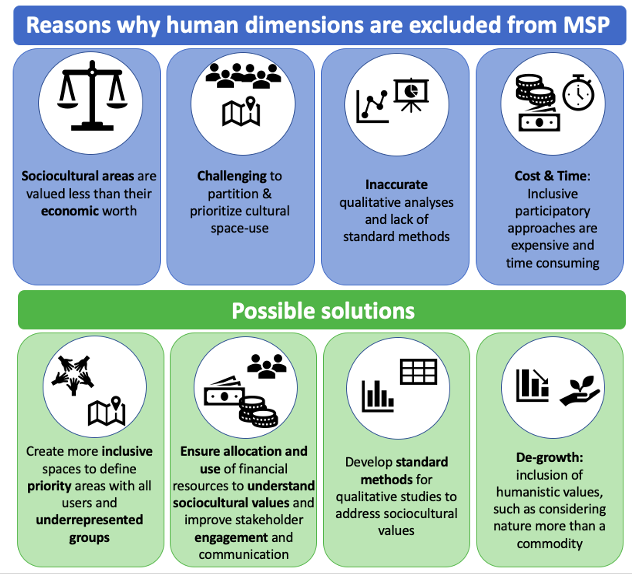Authors: Maria Grazia Pennino, Stephanie Brodie, André Frainer, Priscila Lopes, Jon Lopez, Kelly Ortega-Cisneros, Samiya Selim and Nataşa Văidianu
Although Marine Spatial Planning (MSP) is a relatively new approach to ocean management, there is general consensus that it should to be implemented worldwide. Ideally, MSP should be a public process that considers human activities spatio-temporally in order to achieve ecological, economic and social goals. However, MSP is more often driven by economic interests rather than consideration of sociocultural goals and the aspirations of underrepresented groups. This paper looks at how integrating sociocultural aspects in MSP could make governance more flexible, thereby allowing for greater adaptability in decision-making, supporting environmental justice, and improving acceptance and adherence to MSP. Particular focus was focus was given to potential connection points between MSP and frameworks based on social-ecological system theory, including co-management and other democratic and empowering alternatives. We propose a new definition of the MSP process that is more inclusive and mindful of users’ rights and sociocultural objectives, and conclude that if the gap between dominant economic rhetoric and a de facto sociocultural-ecological system approach is narrowed, the chances of the MSP process succeeding, for both humans and the environment, is increased.
Read more here
